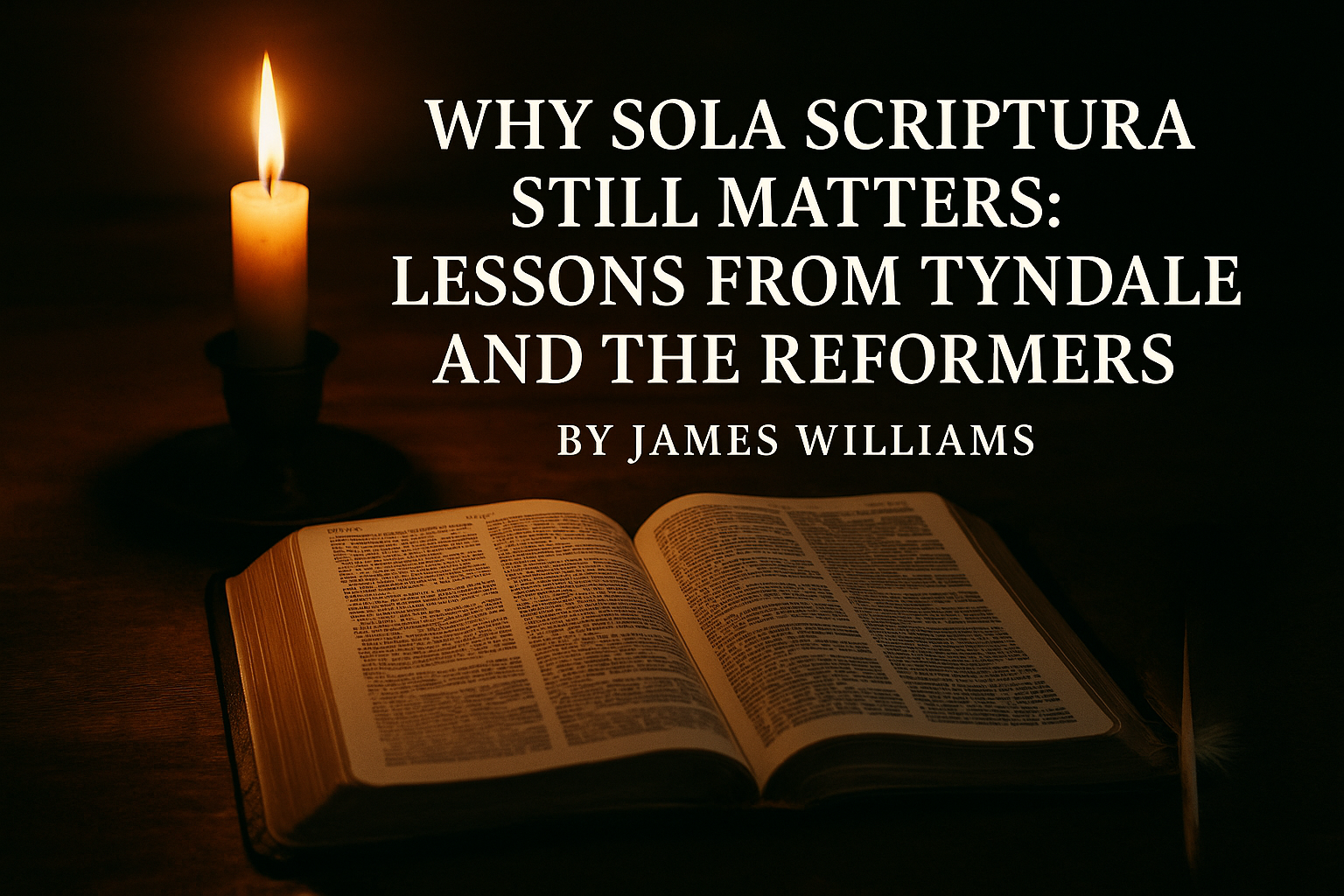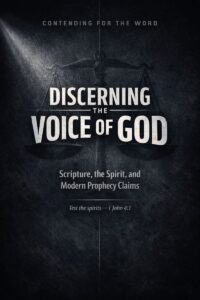⏱️ Estimated Reading Time: 4 min read
Why Sola Scriptura Still Matters: Lessons from Tyndale and the Reformers
By James Williams
How can believers follow a God who is invisible, how do we know what He is like, what He desires, and what He requires of us, the answer is simple, we can only know Him because He has revealed Himself, but where, and how, has God revealed Himself, this question was at the heart of the Reformation, and it remains just as pressing in our time.
No Scripture for the People
In the Medieval Church, the biblical gospel was obscured. Ordinary people had no access to the Scriptures in their own language. Church leaders taught that if the common person read the Bible, they would misinterpret it, as a result, the Bible was reserved for the clergy, and the Pope and priests became the final voices of authority. This left the people dependent upon man’s word, not God’s Word.
Divine Revelation, Scripture and Tradition
A central question during the Reformation was this, what is the source of God’s revelation, the Roman Catholic Church elevated tradition, papal decrees, councils, and church customs, alongside Scripture, treating both as equally authoritative. This view effectively declared the Bible insufficient, giving church leaders the right to fill in the gaps. The Reformers rejected this, they affirmed that while tradition can serve the church, only Scripture is the inspired, inerrant, and final authority for faith and life (2 Timothy 3:16–17).
Sola Scriptura, Scripture Alone
The Reformers stood on Sola Scriptura, the conviction that the Bible alone is the final authority for the believer. If Scripture were insufficient, we would need other sources of revelation, if Scripture were not inerrant, it could not be trusted, if Scripture were not inspired, it would carry no divine authority.
Martin Luther rejected the supposed infallibility of the Pope, declaring that even he must submit to the Word of God, for this, Luther and others were condemned as heretics. Luther wrote:
“While I slept, or drank Wittenberg beer with my friends Philip and Amsdorf, the Word so greatly weakened the Papacy that never a Prince or Emperor inflicted such damage upon it. I did nothing, the Word did it all.”
Because they trusted the power of the Word, the Reformers worked to make Scripture accessible, Luther translated the Bible into German while in exile, others gave their lives to the same cause, including William Tyndale.
William Tyndale and the English Bible
While the Reformation spread across Europe, England remained without an English Bible, knowledge of Scripture was nearly extinguished. William Tyndale resolved to change this, translating Scripture into English was considered a capital crime, in 1519, seven people were burned at the stake for teaching their children the Lord’s Prayer in English.
Tyndale fled England and spent twelve years in exile, translating the Bible under constant threat, when he finished the New Testament, copies were smuggled into England in bales of cotton, authorities burned what they found, but the Word continued to spread.
Eventually, Tyndale was betrayed, captured, and imprisoned, in 1536, he was condemned as a heretic, tied to the stake, he prayed, “Lord, open the king of England’s eyes.” He was strangled and then burned.
Two years later, King Henry VIII authorized an English Bible in every church, this translation, largely Tyndale’s work, shaped the King James Version of 1611, eighty four percent of its New Testament and seventy five percent of its Old Testament came directly from Tyndale, his influence still echoes in many English Bibles today. Tyndale wrote:
“If God spare my life ere many years, I will cause a boy that driveth the plow to know more of the Scripture than he does.”
God’s Word and Today
Many gave their lives so we could hold the Scriptures in our hands, yet in our generation, the authority of God’s Word continues to be challenged, outside the church, skeptics claim the Bible is merely a human book, inside the church, some minimize or reject its clear teaching, the authority of Scripture is undermined when preachers seek entertainment over faithful exposition, or when cultural trends are elevated above God’s truth.
We must not take lightly what others died to give us, may we rise with the Reformers and martyrs of old to declare with boldness, Sola Scriptura, may we see the inspired, inerrant, and sufficient Scriptures as the final authority for our lives and doctrine.
“For the word of God is living and active, sharper than any two edged sword, piercing to the division of soul and of spirit, of joints and of marrow, and discerning the thoughts and intentions of the heart.” Hebrews 4:12
For more from our series on the Reformation visit Always Reforming: Fidelity to God’s Word in Every Generation
James serves as an Associate Pastor at FBC Atlanta, TX. He is married to Jenny and they have three children and are actively involved in foster care. He’s currently working on his PhD in Systematic Theology. His hobbies include: fishing, reading, writing, and running.




